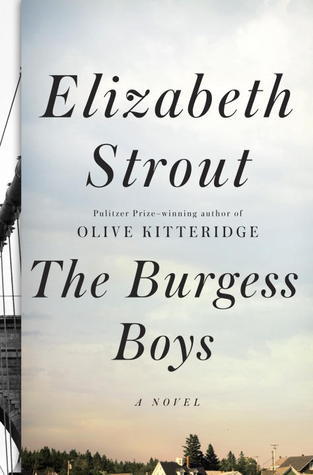April 12, 2023
The Burgess Boys
Running away on my own personal reading projects is perhaps my favourite fascination, the time I spent rereading Madeleine L’Engle’s Austin series in 2019 a case in point. (I talk about it all the time, like some people’s version of where they were when JFK was shot. Where were you when I was reading A Ring of Endless Light? Omg, remember when I was reading A Severed Wasp in New York City? Somebody ought to put up a monument!) And the best thing about these sprees, like most things I do, is that they’re never planned, they just have to happen, and when they do the moment is so absolutely perfect, serendipitous, infusing my life with light and meaning, spiritual, an epiphany. I am not being facetious or hyperbolic in the slightest.
And lately, it’s been the Lucy Barton books, which I’ve been rereading these last few months and wrote about here. These books not blowing my mind quite like the L’Engles did (“every single one of them words rang true and glowed burning coal/ pouring off of every page like it was was written in my soul…”) but rearranging my thinking in a more subtle way, a quieter way. How I’d dismissed them at first, and then going back to see what I’d been (dis)missing, and how exploring Elizabeth Strout’s books is a bit like being handed a key to a literary universe where the reader is omniscient, making connections the characters themselves don’t understand—though it seems like the inverse when one encounters the Lucy Barton books, it’s true, where the connections are elusive, and it’s hard to understand just how she (both Lucy and her author) got from there to here.
But I think that Strout’s 2013 novel The Burgess Boys might just be the bridge.
I first encountered Bob Burgess as a secondary character in Lucy By the Sea, and had the same response to him that Lucy did, which was that I loved Bob Burgess. And so, when I realized that Bob Burgess had his own book (albeit one shared eponymously with his asshole brother Jim) I placed a library hold immediately. (The best thing about becoming obsessed with the Elizabeth Strout books in 2023 is that most of the library holds come in pretty quickly…)
And so Bob Burgess came away with me last weekend, and the coals were glowing again. Oh my gosh, I loved this novel.
The most remarkable thing I can say about it is that I knew its big twist, that Bob had revealed his story to Lucy during their time in Maine, and still the story was not spoiled in the slightest. The other thing I particularly loved was that I got to see Bob (Oh, Bobby!) meeting his second wife for the very first time, and neither of them had any idea!
The Burgess Boys is the first conventionally-structured Strout novel I’ve ever read (the Lucy Barton books are a study in interiority, while her Olive Kitteridge books are the same but with…exteriority [is that a thing?]). And The Burgess Boys really is the bridge between the two, all the scenes of the Lucy Barton books just planted in its soil. Parts of the novel are narrated by Bob’s ex-wife Pam (whom we’ve also met in the Lucy Barton books) and her feelings about her first husband are a quiet preview of what Lucy will feel for William. (There is also, indeed, a line from her perspective: “Oh, Bobby!”
And the scenes in which Bob is looking out the window in his New York City apartment, wondering at all those different lives going on, lighted windows offering just the smallest glimpses of other people’s private worlds—a preoccupation of the Olive and the Lucy books alike. The mystery of other people’s experiences and understandings.
The Burgess Boys is also deeply concerned with the fabric of American society, as the Lucy Barton books are against the backdrop of the 45th President, Covid lockdowns, and the George Floyd/Black Lives Matter protests in 2020. But so unbelievably presciently considering how much I hadn’t seen coming in 2013. The novel is set around 2007, the shadow of the Iraq War and torture in prison camps still very present, and a major part of the plot involves an act of violence on the property of a mosque in small town Maine, where the Burgess boys hail from, where the locals in this dying town are decrying the arrival of Somali immigrants whose culture seems to represent a threat to their way of life. As with the Lucy Barton books, as with, well, everything, the challenge: how do we learn to live with difference? How do we learn to live with each other? Strout refusing to look away from class, either, and how poverty can come to define one’s experience. The ways in which all of our experiences make us either harder or softer. How it’s never not complicated.






